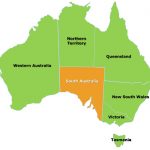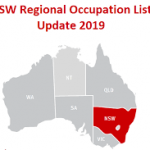Mar 6, 2013
Studying Abroad No More A Dream
[social_share/]
In this age of globalization, distances are coming closer. The world is shrinking with modern communications and in reaction to this trend; organizations are seeking employees who can interact on a global scale. Studying abroad helps in development of what is known as ‘transnational competence’. Studying abroad also helps in developing cross-cultural communication skills, the ability to analyze local customs and cultures, flexibility, maturity, independence and adaptability. Hence, studying abroad compels you to deal with cultural differences which you would have never faced otherwise.

Many students don’t give a serious thought to their career choices while choosing a study abroad program. One of the major challenges faced by many of them is that they are not sure of the direction in which they want to go. In such a case, one should talk to his or her study adviser or career adviser to get help through some of these issues. Here’s a breakdown of procedures of visa application in few prominent destinations for students across the world.
US Student F-1 Visa
Applying for a US Student Visa in America can offer myriad opportunities to those interested in immigration to the United States. There are three types of student visas, each with own different set of requirements. Students attending an accredited U.S college, university or English language institute will need an F-1 visa or J-1 visa. Students involved in non-academic pursuits at either trade or vocational institutions will need an M-1 visa.

An applicant applying for an F-1 student visa is only eligible must be accepted into a course of study at a recognized US educational institution. It is also necessary to provide an affidavit of financial support along with a valid passport and a photograph. Applicants should also have adequate English language ability. This kind of visa is granted for the period of the course of the study but candidates may remain in the country for up to 60 days after the course is completed.
UK Tier 4 Visa
The Tier 4(General) category is for adult students who want to pursue their education after the age of 16 years. The eligibility for an applicant is calculated on the basis of a points based system. To be eligible for this visa you must receive a confirmation of acceptance for studies from a university approved by the UK Border Agency (UKBA). The universities in which the applicant applies must have given or applied for Highly Trusted Status (HTS) on the UKBA Tier 4 Sponsor list.
The applicant should also provide proof of funding to pay for both your course tuition fees and your monthly living costs.
Student Visa Australia
To be granted a student visa in Australia you must satisfy the visa requirements and meet with a number of visa conditions for attendance and academic performance. An applicant should be able to provide an ‘admission offer letter’ from his or her Australian education provider. You should also have a health insurance acceptable through the overseas health cover (OSHC) along with a valid passport. Enough funds to support yourself during your stay at Australia for first year is also required to be eligible for the student visa in Australia. It is advisable that any applicant must start prior 4-6 months preparation to file their cases for student visas.
 Immigration SA is introducing some changes to its general skilled migration nomination policies.
Immigration SA is introducing some changes to its general skilled migration nomination policies.
 Trades Recognition Australia (TRA) has announced changes to the Trade Skills Assessment programs for TSS, OSAP and TRS. The following changes apply to all applications received from 1st March 2019.
Trades Recognition Australia (TRA) has announced changes to the Trade Skills Assessment programs for TSS, OSAP and TRS. The following changes apply to all applications received from 1st March 2019.
 Working Holiday Visa Changes: The availability of a third-year visa will attract working holiday makers to work for longer in regional Australia.
Working Holiday Visa Changes: The availability of a third-year visa will attract working holiday makers to work for longer in regional Australia.
 Working Holiday Visa Australia Basic Requirements and Benefits
Working Holiday Visa Australia Basic Requirements and Benefits
 Canada Permanent Residence
Canada Permanent Residence









